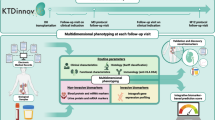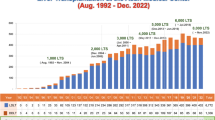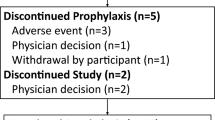Abstract
Purpose
We conducted this observational study to examine the impact of antibody inductions administered at kidney transplant (KT) on outcomes of 5 year exposure to post-transplant diabetes (PTDM) in adult deceased-donor kidney transplant recipients (DDKTRs). We also studied the risk of PTDM associated with antibody inductions.
Methods
Using 2000–2016 Organ Procurement Transplantation Network data, we employed multivariable Cox models to determine the adjusted hazard ratios (HR) of death, and overall and death-censored graft loss (OAGL, DCGL; respectively) at the 5 year landmark period in antibody induction cohorts with and without PTDM at the 1 year post-transplant index time point. We used multivariable logistic regression in determining the risk factors for PTDM. All multivariable analyses were adjusted for the potential confounding effects of maintenance immunosuppression, steroid regimens, and other relevant covariates.
Results
48,031 adult DDKTRs were classified into cohorts based on antibody induction at transplant: (anti-thymocyte globulin) ATG (n = 26, 788); (alemtuzumab) ALM (n = 5916); and interleukin-2 receptor antagonist (IL-2RA) (n = 15,327). PTDM was a risk factor for 5 year OAGL and death, not DCGL [(HR = 1.25, CI = 1.16–1.36), (HR = 1.13, CI = 1.06–1.21), and (HR = 1.05, CI = 0.96–1.16); respectively]. Induction regimens were not risk factors for 5 year outcomes in DDKTRs with and without PTDM. Risk factors for PTDM included DDKTR obesity, age > / = 50 years, acute rejection, and ATG induction, among others.
Conclusions
In adult DDKTRs, after controlling the confounding effects of clinically relevant variables including maintenance and steroid regimens, PTDM at 1 year post-transplant is associated with death and OAGL, not DCGL in the following 5 years: induction received at KT did not modify these associations.




Similar content being viewed by others
References
Hjelmesaeth J, Hartmann A, Leivestad T et al (2006) The impact of early-diagnosed new-onset post-transplantation diabetes mellitus on survival and major cardiac events. Kidney Int 69:588–595
Wauters RP, Cosio FG, Suarez Fernandez ML, Kudva Y, Shah P, Torres VE (2012) Cardiovascular consequences of new-onset hyperglycemia after kidney transplantation. Transplantation 94(4):377–382
Cosio FG, Pesavento TE, Kim S et al (2002) Patient survival after renal transplantation: IV. Impact of post-transplant diabetes. Kidney Int 62:1440
Cosio FG, Kudva Y, van der Velde M et al (2005) New onset hyperglycemia and diabetes are associated with increased cardiovascular risk after kidney transplantation. Kidney Int 67:2415
Valderhaug TG et al (2012) Early posttransplantation hyperglycemia in kidney transplant recipients is associated with overall long-term graft losses. Transplantation 94:714–720
Gaynor JJ, Ciancio G, Guerra G et al (2015) Single-centre study of 628 adult, primary kidney transplant recipients showing no unfavourable effect of new-onset diabetes after transplant. Diabetologia 58:334
Sharif A, Baboolal K (2012) Complications associated with new-onset diabetes after kidney transplantation. Nat Rev Nephrol 8:34–42
Dienemann T, Fujii N, Li Y, Govani S, Kosaraju N, Bloom RD, Feldman HI (2016) Long-term patient survival and kidney allograft survival in post-transplant diabetes mellitus: a single-center retrospective study. Transpl Int 29:1017–1028
Cole EH, Johnston O, Rose CL, Gill JS (2008) Impact of acute rejection and new-onset diabetes on long-term transplant graft and patient survival. Clin J Am Soc Nephrol 3:814–821
Revanur VK, Jardine AG, Kingsmore DB, Jaques BC, Hamilton DH, Jindal RM (2001) Influence of diabetes mellitus on patient and graft survival in recipients of kidney transplantation. Clin Transplant 15:89–94
Kuo HT, Sampaio MS, Vincenti F, Bunnapradist S (2010) Associations of pretransplant diabetes mellitus, new-onset diabetes after transplant, and acute rejection with transplant outcomes: an analysis of the organ procurement and transplant network/united network for organ sharing (OPTN/UNOS) database. Am J Kidney Dis 56:1127–1139
Kasiske BL, Snyder JJ, Gilbertson D, Matas AJ (2003) Diabetes mellitus after kidney transplantation in the United States. Am J Transplant 3:178–185
Ghisdal L, Laecke SV, Abramowicz MJ, Vanholder R, Abramowicz D (2012) New-onset diabetes after renal transplantation. Diabetes Care 35(1):181–188. https://doi.org/10.2337/dc11-1230
Hardinger KL, Brennan DC, Klein CL (2013) Selection of induction therapy in kidney transplantation. Transpl Int 26:662–672
Santos AH Jr, Li Y, Alquadan K, Ibrahim H, Leghrouz MA, Akanit U, Womer KL, Wen X (2020) Outcomes of induction antibody therapies in the nonbroadly sensitized adult deceased donor kidney transplant recipients: a retrospective cohort registry analysis. Transpl Int 33:865–877
Goumard A, Sautenet B, Bailly E et al (2019) Increased risk of rejection after basiliximab induction in sensitized kidney transplant recipients without pre-existing donor-specific antibodies—a retrospective study. Transpl Int 32:820
Koyawala N, Silber JH, Rosenbaum PR, Wang W, Hill AS, Reiter JG, Niknam BA, Even-Shoshan O, Bloom RD, Sawinski D, Nazarian S, Trofe-Clark J, Lim MA, Schold JD, Reese PP (2017) Comparing outcomes between antibody induction therapies in kidney transplantation. J Am Soc Nephrol 28:2188–2200
Opelz G, Unterrainer C, Süsal C, Döhler B (2016) Efficacy and safety of antibody induction therapy in the current era of kidney transplantation. Nephrol Dial Transplant 31(10):1730–1738
Zheng J, Song W (2017) Alemtuzumab versus antithymocyte globulin induction therapies in kidney transplantation patients: a systematic review and meta-analysis of randomized controlled trials. Medicine (Baltimore) 96(28):e7151
Ghisdal L, Baron C, Le Meur Y et al (2009) TCF7L2 polymorphism associates with new-onset diabetes after transplantation. J Am Soc Nephrol 20:2459–2467
Luan FL, Steffick DE, Ojo AO (2011) New-onset diabetes mellitus in kidney transplant recipients discharged on steroid-free immunosuppression. Transplantation 91(3):334–341
Santos AH, Chen C, Casey MJ, Womer KL, Wen X (2018) New-onset diabetes after kidney transplantation: can the risk be modified by choosing immunosuppression regimen based on pretransplant viral serology? Nephrol Dial Transplant 33(1):177–184
Rodríguez-Morán M, Guerrero-Romero F (2003) Oral magnesium supplementation improves insulin sensitivity and metabolic control in type 2 diabetic subjects: a randomized double-blind controlled trial. Diabetes Care 26:1147–1152
Jianming Z, Wenli S (2017) Alemtuzumab versus antithymocyte globulin induction therapies in kidney transplantation patients: a systematic review and meta-analysis of randomized controlled trials. Medicine 96(28):e7151
Bayés B, Pastor MC, Lauzurica R, Granada ML, Salinas I, Romero R (2007) Do anti-CD25 monoclonal antibodies potentiate posttransplant diabetes mellitus? Transpl Proc 39(7):2248–2250
Stevens RB, Lane JT, Boerner BP, Miles CD, Rigley TH, Sandoz JP et al (2012) Single dose rATG induction at renal transplantation: superior renal function and glucoregulation with less hypomagnesemia. Clin Transplant 26:123–132
Aasebo W, Midtvdet K, Valderhaug TG, Leivestad T, Hartman A, Reisaeter AV et al (2010) Impaired glucose homeostasis. Nephrol Dial Transplant 25:1289–1293
Prasad N, Gurjer D, Bhadauria D, Gupta A, Srivastava A, Kaul A et al (2014) Is basiliximab induction, a novel risk factor for new onset diabetes after transplantation for living donor renal allograft recipients? Nephrology (Carlton) 19(4):244–250
Hart A, Smith JM, Skeans MA, Gustafson SK, Wilk AR, Castro S et al (2019) OPTN/SRTR 2017 annual data report: kidney. Am J Transplant 19(Suppl 2):19–123. https://doi.org/10.1111/ajt.15274
Gleiss A, Oberbauer R, Heinze G (2018) An unjustified benefit: immortal time bias in the analysis of time-dependent events. Transpl Int 31:125–130
Zhang J, Yu KF (1998) What’s the relative risk? A method of correcting the odds ratio in cohort studies of common outcomes. JAMA 18 280(19):1690–1691
Altman DG, Bland JM (2003) Statistics notes interaction revisited: the difference between two estimates. BMJ 326:219
Valderhaug TG, Hjelmesæth J, Hartmann A et al (2011) The association of early post-transplant glucose levels with long-term mortality. Diabetologia 4:1341
Eide IA, Halden TAS, Hartmann A, Dahle DO, Åsberg A, Jenssen T (2017) Associations between posttransplantation diabetes mellitus and renal graft survival. Transplantation 101(6):1282–1289
Hwang SD, Lee JH, Lee SW, Park KM, Kim JK, Kim MJ, Song JH (2018) Efficacy and safety of induction therapy in kidney transplantation: a network meta-analysis. Transplant Proc 50(4):987–992
Hill AS, Reiter JG et al (2017) Comparing outcomes between antibody induction therapies in kidney transplantation. JASN 28(7):2188–2200
Shivaswamy V, Boerner B, Larsen J (2016) Post-transplant diabetes mellitus: causes, treatment, and impact on outcomes. Endocr Rev 37(1):37–61
Shah T, Kasravi A, Huang E, Hayashi R, Young B, Cho Y et al (2006) Risk factors for development of new-onset diabetes mellitus after kidney transplantation. Transplantation 82(12):1673–1676
Hwang JL, Weiss RE (2014) Steroid-induced diabetes: a clinical and molecular approach to understanding and treatment. Diabetes Metab Res Rev 30(2):96–102
Do Nguyen HT, Wong G, Chapman JR et al (2016) The Association between broad antigen HLA mismatches, eplet HLA mismatches and acute rejection after kidney transplantation. Transplant Direct 2(12):e120
VanderWeele TJ (2009) On the distinction between interaction and effect modification. Epidemiology 20(6):863–871. https://doi.org/10.1097/EDE.0b013e3181ba333c
Acknowledgements
The data reported here have been supplied by the Minneapolis Medical Research Foundation as the contractor for the SRTR. The interpretation and reporting of these data are the responsibility of the authors and, in no way, should be an official policy of or interpretation by the SRTR or the U.S. Government. We acknowledge Mr. Jon A Gregg, MS for the statistical analysis of this study.
Funding
No funding was received to assist with the preparation of this manuscript.
Author information
Authors and Affiliations
Corresponding author
Ethics declarations
Conflict of interest
The authors have no relevant financial or non-financial interests to disclose.
Additional information
Publisher's Note
Springer Nature remains neutral with regard to jurisdictional claims in published maps and institutional affiliations.
Rights and permissions
About this article
Cite this article
Santos, A.H., Leghrouz, M.A., Bueno, E.P. et al. Impact of antibody induction on the outcomes of new onset diabetes after kidney transplantation: a registry analysis. Int Urol Nephrol 54, 637–646 (2022). https://doi.org/10.1007/s11255-021-02936-1
Received:
Accepted:
Published:
Issue Date:
DOI: https://doi.org/10.1007/s11255-021-02936-1




